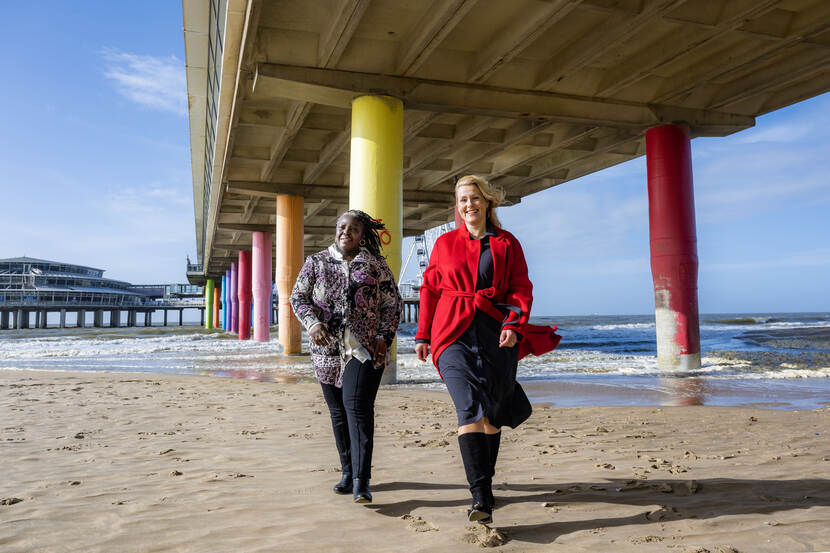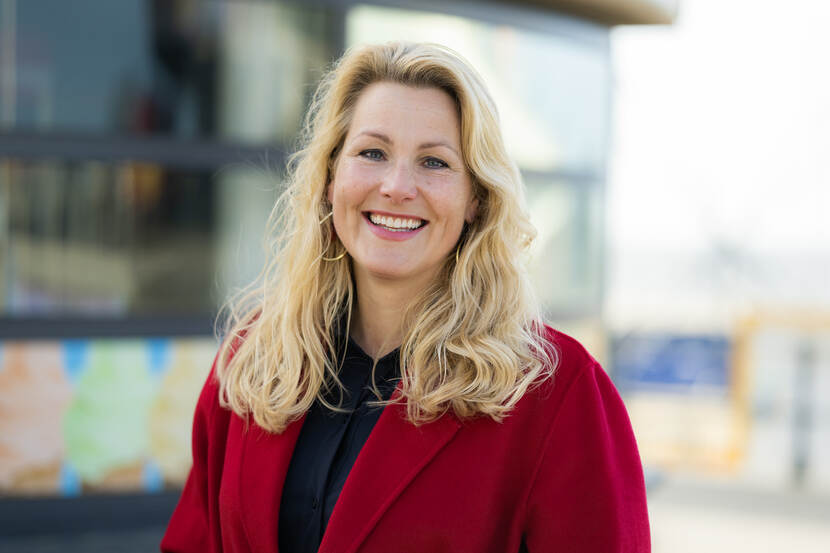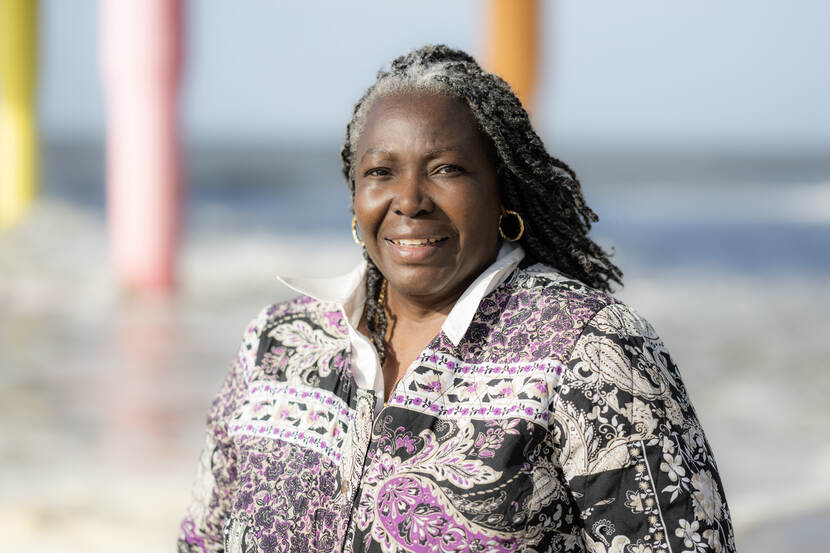Onboarding
How do we make sure that new members of staff feel at home at the Ministry of Foreign Affairs? The onboarding process of the Human Resources Department (Hoofddirectie Personeel en Organisatie, HDPO) helps all new members of staff get to know the organisation better as soon as they start work. In 2023, the Academy for International Relations organised a welcome day every month for all newcomers in The Hague.
A ministry-wide steering committee was set up in the autumn of 2022 to organise proper and centralised onboarding at the Ministry of Foreign Affairs. Mirella van de Noort, head of the Academy for International Relations, was involved in this initiative at the time. ‘When I started at the Ministry five years ago, I noticed that there were no centrally organised introduction activities to allow new staff to get to know the organisation. An introduction day is important to allow new employees to find out about what goes on at the Ministry, and what their role is in that respect. We also want to inform them about important topics such as diversity and inclusion, integrity, and vitality. By adopting a centralised onboarding approach, we want to ensure that new colleagues immediately feel at home at the Ministry of Foreign Affairs and are properly informed when they start work.’

Monthly welcome day
In the autumn of 2022, HDPO investigated how other ministries and organisations organise their onboarding. ‘We presented the results of our investigation and were then instructed by the Senior Management Board to set up a centralised onboarding initiative. We were also looking at decentralised onboarding at departments and missions because there appeared to be a considerable difference between the approaches adopted by various Ministry of Foreign Affairs units.’ One of the outcomes for the centralised approach was to streamline the provision of information for new colleagues and to organise a monthly welcome day to bring new employees from all the divisions together, during which the focus would be on sharing information and connecting with each other and the organisation.
On a welcome day, around fifty new colleagues are introduced to Secretary-General Paul Huijts or Deputy Secretary-General Carola van Rijnsoever. They then talk about how important they feel it is to have a diverse and inclusive work culture and a safe work environment, and they outline the political and international context of the Ministry of Foreign Affairs. They also address current issues at the Ministry, such as the recent report on racism. The Secretary-General, Deputy Secretary-General, or HDPO director also attend the oath or affirmation ceremony.
The welcome day is also an opportunity for various colleagues to talk about their work. As Mirella explains, ‘Anyone can read what we do, but when a Director-General for International Cooperation, a colleague of the consular department, or an ambassador for women’s rights talks about the cases they deal with and the negotiations they conduct, the work of the Ministry of Foreign Affairs really comes alive. There is also plenty of room for questions.’
Interaction and networking
After a group photo has been taken, there is time for personal interaction. In small groups, colleagues from different divisions explain how they deal with issues such as vitality and health, communication, learning and development, diversity and inclusion, integrity, and a safe work environment.
The day ends with a drinks and networking session. The steering committee thinks it is important that employees have the opportunity to network with their colleagues from other departments. ‘The Ministry of Foreign Affairs is a large organisation. You need the cooperation of different divisions for almost every issue. It is great if you know how each of your colleagues can help you, and how you can contact them.’
The feedback from participants and speakers is used for the continuous improvement of the entire onboarding process. ‘Initially, we tried to fit too much into the welcome day programme, and the emphasis was on providing information. These days, it is much more interactive.’

Get to know your employer better
‘The responses to the onboarding process and the welcome day are very positive,’ explains Mirella. Sandra Forster agrees. She attended the welcome day at the beginning of March. She had worked for the Ministry of Foreign Affairs via a temping agency for almost a year before being recruited on 1 March to the position of budget administrator at the Financial Service Organisation (FSO). Her job is to support various regional departments that do not have their own controller for financial and administrative duties, for example with drafting contracts and making payments.
Sandra is convinced of the added value of a centralised day for onboarding. ‘I really enjoyed networking with people of all ages, backgrounds, and with all kinds of jobs.’ Sandra endorses Mirella’s comments, namely that to feel at home, you need to get to know the entire organisation better. ‘My work only affects a small part of the organisation as a whole. I enjoy finding out what else my employer is doing and hearing people’s views on certain themes.’
Sandra also thought that the information that was shared during the course of the morning was interesting. ‘For example, the speakers explained what you need to pay extra attention to as a government representative. One thing they talked about was working safely on your laptop when you are outside the building. If you accidentally leave something lying around somewhere, the consequences for a government organisation can be considerable. The interactive part of the day was also inspiring. I really enjoyed spending the day finding out more about my employer.’

Further rollout of onboarding
‘The steering committee also wants to extend a similar welcome to new staff at the missions,’ according to Mirella. ‘We are currently holding talks with representatives from missions around the world. In 2024, we will start with an online welcome day. We also want to provide space for presentations by the various networks, such as Out There, Bind, VerYBZ, FEE, and Onbegrensd, which is the new network by and for colleagues with a disability and neurodiversity. By the way, there is now a new onboarding coordinator who will steer this process in the right direction in the future.’
The steering committee is also helping with decentralised onboarding, for example by sharing best practices with various divisions. The onboarding organised for Sandra's team went smoothly. ‘My colleagues gave me a programme for the first two weeks during which I was introduced to FSO, my team, the systems, and my work. After that, I was assigned a buddy who continued to help me. It is partly thanks to my supportive colleagues, but I now feel truly at home at the Ministry of Foreign Affairs.’